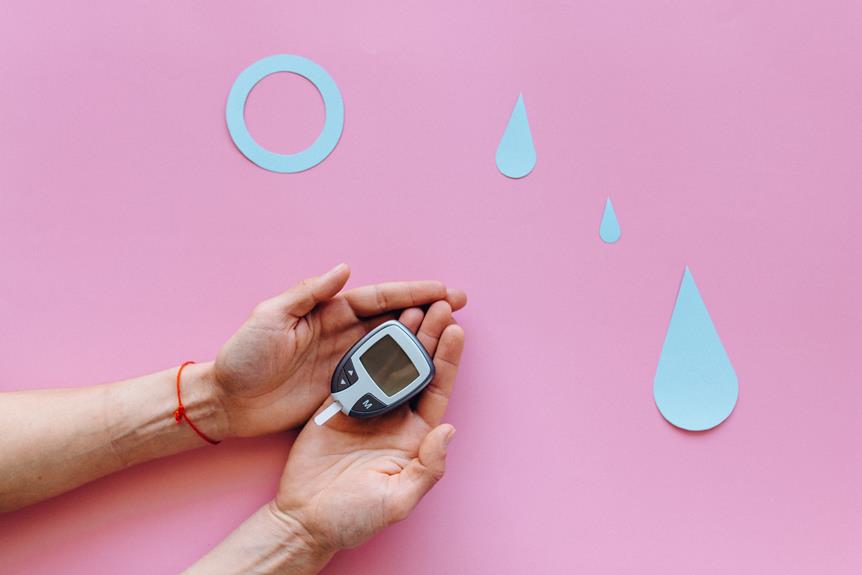What Is Woman Infertility and Common Causes

In the intricate tapestry of reproductive health, woman infertility emerges as a complex enigma awaiting unraveling. Like a delicate puzzle, it demands our attention and understanding.
This article aims to shed light on the perplexing nature of female infertility and its common causes. By delving into the factors that contribute to this challenge, we seek to equip our audience with knowledge, empowering them to navigate this journey with compassion and support.
Key Takeaways
- Age is a significant factor that naturally decreases female fertility, leading to a decline in the number and quality of eggs, making it difficult to conceive or carry a pregnancy to term.
- Stress, hormonal imbalances, irregular menstrual cycles, and negative lifestyle choices can all have a negative impact on female fertility.
- Common causes of female infertility include hormonal imbalances affecting ovulation, structural abnormalities in the reproductive system, blocked fallopian tubes, uterine fibroids, and the psychological impact of infertility.
- Unexplained infertility can be frustrating, but advancements in fertility treatments like IVF offer hope. Lifestyle changes such as maintaining a healthy weight, managing stress, and avoiding smoking and excessive alcohol consumption can also improve fertility outcomes.
Understanding Female Infertility
One common cause of female infertility is the woman's age and its impact on the quality of her eggs.
As women age, their reproductive health naturally declines, leading to a decrease in the number and quality of their eggs. This decline in fertility can result in difficulty conceiving or carrying a pregnancy to term.
Understanding the impact of age on female reproductive health is crucial for those serving others in the field of fertility treatment options. It is important to educate women about the potential challenges they may face as they get older and to explore alternative options such as assisted reproductive technologies.
By acknowledging and addressing the impact of age on fertility, healthcare providers can better assist women in their journey towards parenthood.
Now, let's explore the factors behind woman infertility.
Exploring the Factors Behind Woman Infertility
It is essential to delve into the various factors behind woman infertility in order to better understand the complexities of this issue and develop effective treatment options. Two key factors that play a significant role in female fertility are the impact of stress and lifestyle choices.
Stress has been shown to have a detrimental effect on female fertility. High levels of stress can disrupt the hormonal balance in the body, leading to irregular menstrual cycles and decreased chances of conceiving. Additionally, stress can also affect the quality of eggs and sperm, further reducing the chances of successful fertilization.
Lifestyle choices, such as smoking, excessive alcohol consumption, and poor diet, can also have a negative impact on female fertility. Smoking, for example, has been linked to decreased ovarian function and an increased risk of miscarriage. Similarly, excessive alcohol consumption can disrupt hormone levels and impair fertility.
To better understand the impact of stress and lifestyle choices on female fertility, let's take a closer look at the table below:
| Factors | Impact on Female Fertility |
|---|---|
| Stress | Hormonal imbalance |
| Irregular menstrual cycles | |
| Decreased chances of conceiving | |
| Lifestyle Choices | Smoking |
| Decreased ovarian function | |
| Increased risk of miscarriage | |
| Excessive alcohol consumption | |
| Disruption of hormone levels | |
| Impaired fertility |
Common Causes of Female Infertility
A thorough examination of the common causes of female infertility reveals that hormonal imbalances and structural abnormalities in the reproductive system are two key factors that contribute to the inability to conceive.
Hormonal imbalances can disrupt the normal ovulation process, making it difficult for women to release mature eggs for fertilization.
Structural abnormalities, such as blocked fallopian tubes or uterine fibroids, can prevent the fertilized egg from implanting in the uterus.
The psychological impact of female infertility should not be overlooked, as it can lead to feelings of sadness, frustration, and a sense of inadequacy.
Fertility treatments for women, such as hormone therapy, surgery, or assisted reproductive technologies, can help address these underlying issues and increase the chances of conception.
Unraveling the Mystery of Woman Infertility
Understanding the underlying factors contributing to female infertility is crucial in unraveling the mystery and providing effective treatment options for women struggling to conceive. One of the most challenging aspects of female infertility is unexplained infertility, which occurs when all diagnostic tests come back normal, yet pregnancy remains elusive. This can be frustrating and disheartening for couples trying to start a family.
However, advancements in fertility treatments have provided hope for those facing unexplained infertility. Assisted reproductive technologies, such as in vitro fertilization (IVF), have proven to be successful in helping many couples conceive. Additionally, lifestyle changes, such as maintaining a healthy weight, managing stress levels, and avoiding smoking and excessive alcohol consumption, can also contribute to improved fertility outcomes.
Key Factors Contributing to Female Infertility
What are the key factors contributing to female infertility, and how can they be effectively addressed to enhance fertility outcomes?
- Age: As women age, their fertility naturally decreases. This can be addressed by considering fertility treatments at an earlier age.
- Hormonal imbalances: Irregular menstrual cycles or hormonal disorders can affect fertility. Treatments such as hormone therapy can help regulate these imbalances.
- Structural abnormalities: Conditions like blocked fallopian tubes or uterine fibroids can hinder conception. Surgical interventions or assisted reproductive techniques can address these issues.
- Polycystic ovary syndrome (PCOS): This common condition can cause irregular ovulation and infertility. Lifestyle modifications, medication, or fertility treatments can help manage PCOS-related infertility.
- Emotional impact: Female infertility can have a profound emotional impact on women and their partners. Counseling, support groups, and psychological interventions can help address the emotional challenges and improve fertility outcomes.
Frequently Asked Questions
Can Male Infertility Contribute to Female Infertility?
Male infertility can indeed contribute to female infertility, as it can impact the overall reproductive health of a couple. Factors such as low sperm count, poor sperm motility, or genetic abnormalities can affect the chances of conception and pregnancy in women.
Is Age a Significant Factor in Female Infertility?
Age is a significant factor in female infertility, with a decline in fertility starting in the late 20s. By the age of 35, a woman's fertility decreases further, and after 40, chances of conceiving naturally become even more challenging.
Can Stress and Lifestyle Choices Affect a Woman's Fertility?
Stress and lifestyle choices can indeed have an impact on a woman's fertility. High levels of stress can disrupt hormone levels and ovulation, while unhealthy lifestyle choices such as smoking and excessive alcohol consumption can also contribute to infertility.
Are There Any Preventive Measures That Can Be Taken to Reduce the Risk of Female Infertility?
Preventive measures can be taken to reduce the risk of female infertility. Lifestyle factors such as maintaining a healthy weight, avoiding smoking and excessive alcohol consumption, managing stress, and practicing safe sex can all contribute to preserving fertility.
How Common Is Female Infertility and Is It on the Rise?
Female infertility affects a significant number of women worldwide. Statistics show that approximately 10-15% of couples experience difficulties in conceiving. Various factors, such as age, hormonal imbalances, and reproductive disorders, contribute to the rise in female infertility cases.







